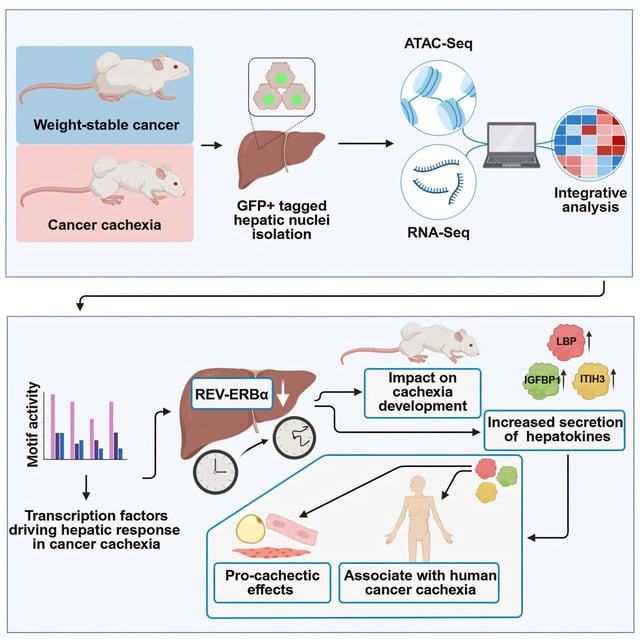Overview
- Researchers discovered that cancer cachexia silences the liver’s circadian regulator REV-ERBα, reprogramming metabolic pathways
- Loss of REV-ERBα triggers hepatic secretion of hepatokines LBP, ITIH3 and IGFBP1, which drive muscle and fat degradation in cell and animal models
- Liver-targeted reactivation of REV-ERBα in mice significantly reduced body mass loss and preserved muscle and adipose tissue
- Preclinical inhibition of the identified hepatokines effectively mitigated tissue wasting in muscle and fat models
- Patient blood analyses revealed elevated hepatokine levels in cachectic cancer patients, indicating new avenues for early diagnosis
